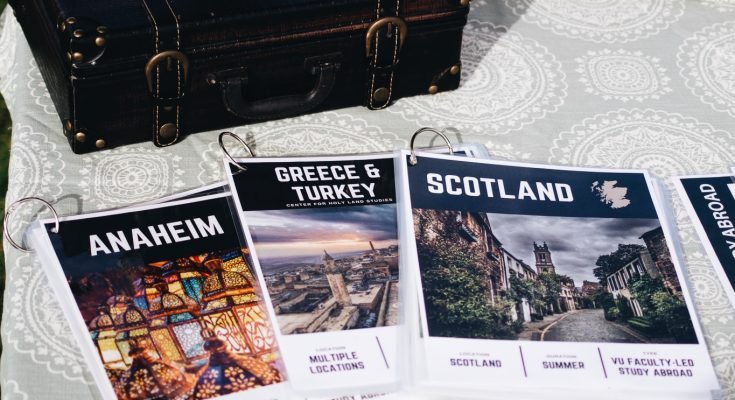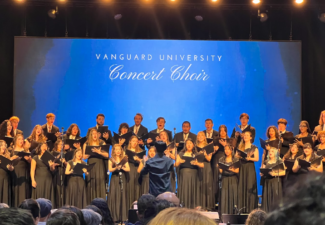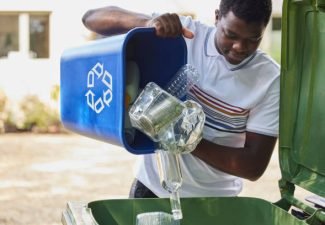For the last couple of years, COVID-19 has prevented students from having the full college experience, including their ability to travel. Now that places are opening up, students should take full advantage of the opportunities placed in front of them such as studying abroad, attending a mission trip, or even planning a trip with friends or family.
College is where young adults first experience independence and freedom. For many, it is their first time living away from home. They are finally getting a taste of how much there is to discover.
Traveling across the world expands independence, and exposes students to new experiences.
Katie Hiew, the Assistant Director of the Global Education and Outreach Department, said that building self-confidence, learning practical life skills, and gaining problem-solving abilities are all advantages to traveling abroad.
While traveling abroad in a new country, students have zero connections. This means they have to make new friends, build networks, and put themselves out there. By interacting with strangers, students build self-confidence.
There are many practical life skills that traveling abroad encompasses. One is adaptability. Students have to get used to a new environment and make themselves comfortable where they are. There is also time management. If studying in another country, schoolwork needs to be maintained while exploring a new area. Another skill is communication. Many students will have to learn a new language to successfully interact with people.
Travel abroad teaches valuable problem-solving skills. Students cannot rely on their parents during inconveniences. Students may end up lost, losing valuables, running out of money, or even getting sick.
Hiew also mentioned, “Seeing other cultures can be eye opening.”
People are used to the culture they grew up in. Being exposed to other cultures strengthens empathy and awareness. Many do not realize that people live differently until they see it firsthand.
People around the world eat different food, have an array of occupations, enjoy various activities, are surrounded by diverse landscapes, and live in different economies. Students understand other cultures better when submerging themselves in it. Culture is wrapped up in how people interact with their environment and history.
Although, Choosing a place to travel to may be difficult. There are 195 countries and about 10,000 cities. No matter where students go — there is value in their travel.
Hiew illustrated her favorite places to travel, stating, “Everywhere I’ve been I have learned something from that experience. The best food I ate was in Greece. The most beautiful country I visited was Croatia. The most difficult country was Turkey. The nicest people are the Moroccans.”
Not to say that traveling abroad will always be easy. Hiew also listed difficulties and challenges that students may face which include: airsickness, fear, anxiety, food allergies, cost, fundraising, and much more.
People around the world eat drastically different food, so it can be difficult for students to find foods they like, eat their preferred diet, or avoid allergens.
Traveling can also be expensive. Students have to pay for plane tickets, housing, classes, food, and souvenirs. They must raise money, save money, and manage it well, especially college students who have to pay for bills, gas, and supplies outside of tuition.
This can be a lot for students to take on by themselves. However, Vanguard University has made traveling abroad accessible through the Global Education and Outreach Department.
They provide opportunities to study abroad and plan mission trips. Students can study abroad during regular semesters or over the summer. Mission trips are organized during breaks so students don’t have to miss classes.
The GEO department helps students every step of the way. They provide the necessary information and resources on different opportunities. They help students fill out paperwork, raise money, research scholarships, fill out applications, and organize necessary needs. Students can even contact the GEO department while abroad. After the student’s trip, GEO helps adjust back to life and asks for a debrief on their trip.
There are several ways to contact the GEO department. Students can stop by their office on the first floor of Scott Academic Center; talk with Kayli Hillebrand, Associate Dean of International and Experiential Education; Katie Hiew, Assistant Director of the Global Education and Outreach Department; or their appointed interns. They can answer any questions and prepare students with the necessary tools for these opportunities.
Students can also visit the Global Education and Outreach page on the Vanguard portal to find more information on trips and studying abroad or the Geo Instagram page, @vugeo, where they post updates and important information on events and opportunities.

 The Liturgical Calendar: Should Christians Observe It?
The Liturgical Calendar: Should Christians Observe It? Embracing Authenticity in the Pursuit of Success: A Reflection on Journalism, Education, and Meaningful Academia
Embracing Authenticity in the Pursuit of Success: A Reflection on Journalism, Education, and Meaningful Academia Spring Concert: Music From Around the World
Spring Concert: Music From Around the World Recycling on College Campuses
Recycling on College Campuses
Leave a Reply